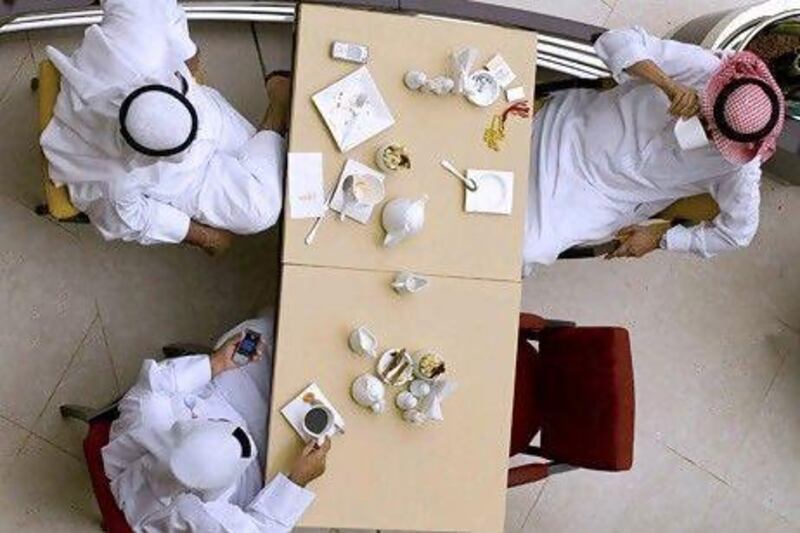They are young, they are rich and they need someone to hold their hands while they spend their fortunes.
Some of the young people invited to the Merrill Lynch Global Investing Programme last month in London were just 18 years old but had already been classified as ultra high-net worth individuals or Uhnis - those with assets of US$30 million (Dh110.1m) or more.
For the fifth year in a row, Merrill Lynch Wealth Management last month ran its week-long programme on financial planning for 50 investors of between 18 and 25 years from Europe, the Middle East and Africa (EMEA), including two young people from the UAE.
"Our clients attach great value to equipping their sons and daughters with a good understanding of the processes and disciplines of successful investing," says David Jervis, the head of Merrill Lynch Wealth Management in EMEA.
The firm declines to provide specific details of the programme.
In the Middle East and North Africa, individuals with more than $1m in investable assets account for $800 billion, according to the Middle East Institute in Washington, making the wealth management industry here a lucrative one.
The amount of money in the hands of younger Uhnis makes it even more important for them to learn the ropes of investment. While Turkey and Saudi Arabia account for most of the total wealth, the UAE follows with $110bn in investable assets among 775 Uhnis, the US institute estimates.
"Young Uhnis need to study and become knowledgeable about the principles of investment, to be able to monitor and check up on the advice and recommendations given by the investment advisers they or their family group may employ," says Christopher Dixon, a partner at the Taylor Wessing (Middle East) law firm in Dubai. The firm advises about 15 Uhnis from established and emerging business families.
A disproportionate amount of wealth lies with Uhnis, according to the 2011 World Wealth Report from Merrill Lynch Wealth Management and the French consultancy firm Capgemini.
"At the end of 2010, [Uhni] represented only 0.9 per cent of the global [high net-worth individual] population but accounted for 36.1 per cent of global [high net-worth individuals'] wealth," it said.
Some of the world's richest people, such as Bill Gates and Warren Buffet, have often appealed to the wealthy to donate to worthy causes. But that is easier said than done.
While many of the younger Uhnis are moving away from traditional patterns of investing and taking ethical investing more seriously, studies show there are considerable challenges. Identifying causes and charities, measuring the effectiveness of donations, finding the right advice on charitable giving and networking with other donors are some, according to New Philanthropy Capital, a non-profit organisation based in London that helps donors support charities.
The problem for young Uhnis "may be finding sufficient sound investments which satisfy their demanding criteria", Mr Dixon says.
"Many are likely to have stronger views and opinions than their parents' generation on matters such as tobacco, alcohol, exploitation of child labour, or exploitation of workers where the investment target purchases, say, a crop or a product through middlemen."
The focus this year at the Merrill Lynch programme was socially responsible investing and philanthropy.
"Visits to selected charities provided participants with a broader understanding of philanthropy, from how to approach charitable giving to how charities operate on the ground and the process of fund raising," says Sanjana Morjaria, the co-ordinator of the Global Investing Programme at Merrill Lynch Wealth Management for EMEA, based in London.
Mr Dixon, says there are two schools of thought when it comes to philanthropy and socially responsible investing. For some, it is not as important as it should be because the main focus of some young Uhnis is to maximise profits in a short time, he says.
Yet, in the region, he points out, "Philanthropy is already ingrained among Muslims, both through zakat - the payment of a fixed portion of one's wealth to charity - and through the establishment of and contributions to charities both during a Muslim's lifetime and upon death."
twitter: Follow and share our breaking business news. Follow us
iPad users can read the digital edition of business section as it was printed via our e-reader app. Click here





